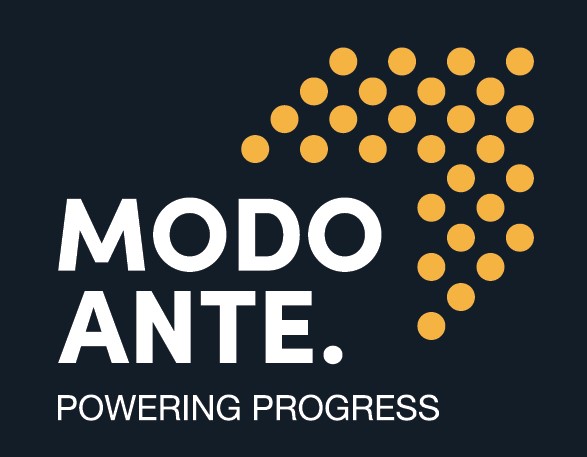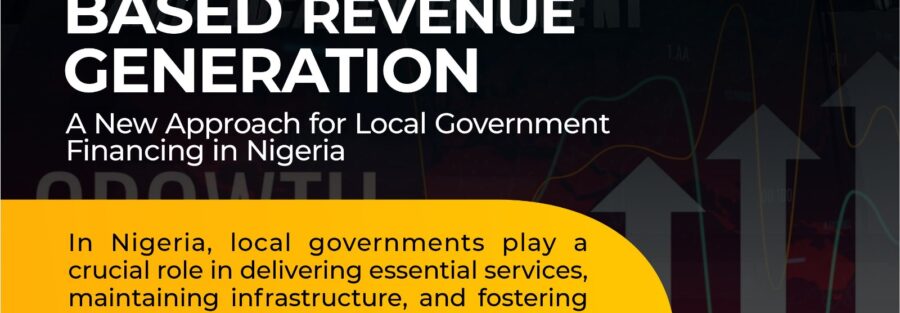In Nigeria, local governments play a crucial role in delivering essential services, maintaining infrastructure, and fostering community development. However, many of these local authorities struggle with financial constraints, often relying heavily on federal allocations that are not always sufficient to meet the growing needs of their communities. The pressing question then becomes: How can local governments in Nigeria achieve financial independence and sustainability?
One promising solution lies in community-based revenue generation (CBRG), an approach that not only diversifies revenue streams but also strengthens the bond between local governments and their constituents. This article explores how CBRG can be effectively implemented in Nigerian local governments, demonstrating how this innovative approach can transform local governance and boost financial autonomy.
Understanding Community-Based Revenue Generation (CBRG)
Community-Based Revenue Generation involves the direct participation of local communities in the creation and management of revenue streams. This model encourages local governments to tap into resources within their communities, such as local businesses, markets, natural resources, and even the labor force. By doing so, local governments can generate revenue that is more sustainable, predictable, and aligned with the specific needs and characteristics of their communities.
Why CBRG Matters for Nigerian Local Governments
Nigerian local governments are often hampered by a lack of sufficient funds, which limits their ability to provide basic services such as healthcare, education, waste management, and road maintenance. According to the National Bureau of Statistics (NBS), only about 35% of local governments in Nigeria are able to consistently generate internally generated revenue (IGR) that significantly contributes to their budgets. This heavy reliance on federal allocations, which account for about 80% of local government revenue, leaves them vulnerable to national economic downturns and fluctuating oil prices.
CBRG offers a viable alternative by empowering local governments to harness the economic potential within their communities. By fostering local enterprise, promoting market activities, and leveraging communal resources, local governments can create a more resilient and self-sustaining financial model.
Key Strategies for Implementing CBRG
- Leveraging Local Markets: Local markets are often the economic hubs of Nigerian communities. Local governments can generate revenue by modernizing these markets, implementing market fees, and ensuring better management and facilities. For example, the introduction of market stalls with proper amenities can attract more traders and buyers, leading to increased revenue from stall rentals and daily levies.
- Engaging in Public-Private Partnerships (PPPs): PPPs can be instrumental in developing local infrastructure such as bus parks, shopping complexes, and recreational centers. These facilities can then be monetized through user fees, rentals, and advertisements. In Anambra State, the partnership between the state government and private investors in the development of the Onitsha International Market has significantly boosted local revenue, contributing to over 20% of the state’s IGR in 2022.
- Natural Resource Management: Many local governments are located in areas rich in natural resources, including minerals, forests, and arable land. Local governments can engage communities in sustainable exploitation of these resources, generating revenue through licensing, permits, and community-owned enterprises. In Ogun State, the management of local quarries has provided a steady income stream, with quarry fees contributing approximately ₦1.5 billion annually to the state’s coffers.
- Tourism and Cultural Heritage: Nigeria is home to a wealth of cultural and historical sites that can be developed into tourist attractions. Local governments can invest in promoting these sites, organizing cultural festivals, and charging entry fees or levies on tourism-related activities. Osun State’s Osun-Osogbo Sacred Grove, a UNESCO World Heritage Site, generates substantial revenue during the annual Osun-Osogbo festival, attracting thousands of tourists each year.
- Community Contribution Schemes: Engaging the local population in revenue generation through voluntary contribution schemes can also be effective. This could take the form of community levies for specific projects, such as road construction or school renovation. In Ekiti State, the community of Ikere-Ekiti successfully funded the renovation of its local primary school through a community contribution scheme, raising over ₦10 million within six months.
Challenges and Solutions
While CBRG offers immense potential, it is not without challenges. Issues such as corruption, lack of accountability, and insufficient capacity within local governments can hinder the successful implementation of these strategies. To address these challenges:
- Transparency and Accountability: Local governments must establish transparent processes for revenue collection and expenditure. Engaging community leaders and stakeholders in decision-making can build trust and ensure that funds are used effectively.
- Capacity Building: Training local government officials and community members in financial management, project planning, and resource mobilization is essential. This can be achieved through partnerships with NGOs, educational institutions, and international development agencies.
- Legislation and Policy Support: The success of CBRG requires supportive policies and legislation that empower local governments to generate and manage their own revenue. This includes laws that protect local revenue sources from being diverted to state or federal levels.
How Modo Ante Can Help
At Modo Ante, we understand the unique challenges faced by local governments in Nigeria, and we are committed to providing tailored solutions that drive financial independence and sustainability. Our expertise in governance, strategy, and community engagement positions us as the ideal partner for local governments looking to implement Community-Based Revenue Generation initiatives.
Modo Ante can assist:
- Strategic Planning and Implementation: We work closely with local governments to develop comprehensive CBRG strategies that are aligned with their specific needs and goals. Our team of experts provides hands-on support throughout the implementation process, ensuring that each initiative is effectively executed and delivers measurable results.
- Capacity Building and Training: Modo Ante offers targeted training programs designed to equip local government officials with the skills and knowledge necessary to manage CBRG initiatives successfully. Our training covers areas such as financial management, community engagement, project planning, and transparency in revenue collection.
- Public-Private Partnership Development: We facilitate the establishment of PPPs that can unlock significant revenue potential for local governments. By connecting local authorities with private sector partners, we help create mutually beneficial projects that enhance infrastructure, boost local economies, and generate sustainable revenue streams.
- Community Engagement and Stakeholder Management: Effective community engagement is crucial for the success of CBRG initiatives. Modo Ante specializes in designing and implementing community engagement strategies that build trust, foster collaboration, and ensure that revenue generation efforts have the full support of local communities.
- Monitoring and Evaluation: We provide ongoing monitoring and evaluation services to track the performance of CBRG initiatives. By assessing progress against predefined goals and metrics, we help local governments make informed decisions and continuously improve their revenue generation strategies.
The Road Ahead: Projections for Financial Autonomy
If implemented effectively, CBRG can significantly enhance the financial independence of Nigerian local governments. Projections indicate that by increasing local revenue generation by just 15% annually, local governments could reduce their dependence on federal allocations by up to 25% within the next five years. This would not only improve service delivery but also create a more stable and predictable financial environment for local governments.
Moreover, the multiplier effect of community-based revenue initiatives could lead to increased local economic activity, job creation, and overall community development. By fostering a sense of ownership and responsibility among community members, CBRG can also strengthen the social contract between local governments and their constituents, leading to better governance and a more engaged citizenry.
Conclusion
Community-Based Revenue Generation represents a forward-thinking approach to local government financing in Nigeria. By tapping into the economic potential within their own communities, local governments can achieve greater financial independence, enhance service delivery, and drive sustainable development. The success of CBRG will depend on strong leadership, community engagement, and a commitment to transparency and accountability.
At Modo Ante, we are ready to partner with local governments across Nigeria to help them navigate this transformative journey. Together, we can build a more resilient and prosperous future for communities across the nation.



